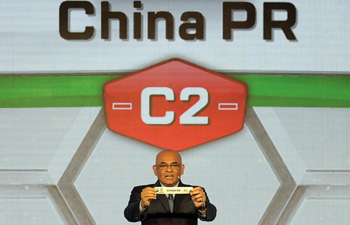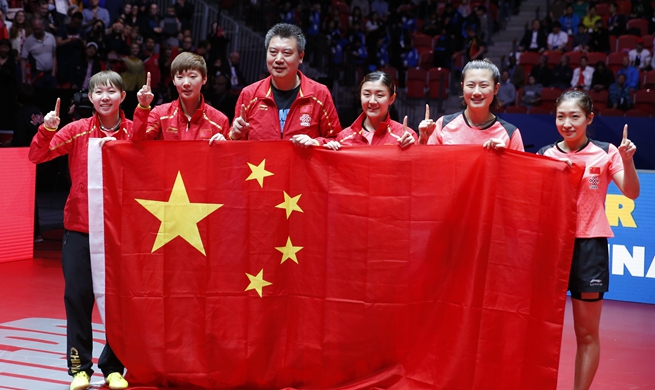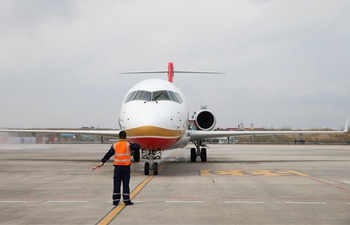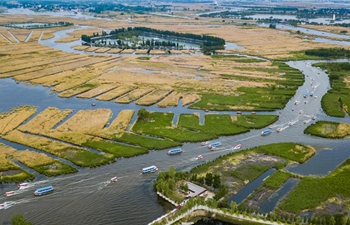SEOUL, May 5 (Xinhua) -- China, South Korea and Japan can achieve peace and prosperity in Northeast Asia based on mutual trust and understanding, an expert said ahead of a key trilateral leaders' meeting.
The May 9 meeting in Japan will be attended by Chinese Premier Li Keqiang, Japanese Prime Minister Shinzo Abe, and South Korean President Moon Jae-in.
"The three countries are advocating peace, stability and prosperity. They should step up efforts to cast away doubts (of) each other's diplomatic strategy," Lee Jong-heon, secretary-general at the Trilateral Cooperation Secretariat (TCS), told Xinhua Friday.
Lee said the trio should try to understand one another's policy and strategy more deeply.
Mutual trust and understanding as well as diplomatic efforts will be important to deepen their cooperation, as Northeast Asia has been relatively unstable for several reasons such as the Korean Peninsula nuclear issue and the U.S. influence on the region, he said.
Territorial and historical issues remain the most serious dilemmas since they are politically sensitive and emotionally unacceptable to the people of the three countries, he pointed out.
The political leaders should show their foresight and determination, while the people of the three countries should try to understand one another and increase communication, he said.
Regarding the Korean Peninsula nuclear issue, Lee said it has been one of the biggest factors impeding a deeper trilateral cooperation. However, now with detente on the peninsula, Northeast Asia is facing an "enormously good opportunity" to deepen cooperation.
South Korean President Moon and Kim Jong Un, the top leader of the Democratic People's Republic of Korea (DPRK), met on April 27, agreeing to complete denuclearization and transform the current armistice agreement into a peace treaty by the end of this year.
Based on political trust, the three countries can deepen economic cooperation, including the Fourth Industrial Revolution, and resolve the rising unemployment rate, the TCS chief said. China, Japan and South Korea are the world's second, third and 11th largest economies respectively in terms of GDP.
The trilateral cooperation can also boost cooperation with the Association of Southeast Asian Nations (ASEAN), Lee said.
"Northeast Asia and the ASEAN will inevitably follow a process of mutual connectivity, mutual interaction and mutual positive influence ... to eventually form an East Asia Economic Community," he said.
Lee said the three countries have benefited from free trade and their growth has been driven by export. They should support free trade with one voice to help Asia maintain its growth momentum though the United States was retreating from free trade.
Noting that the cooperation among the three countries has developed rapidly despite challenges, he forecast that they would be able to bring trust and cooperation to Northeast Asia though it would take time.
"The three countries, being geographically close, have taken (crises) such as the 1997 Asian foreign exchange crisis and the 2008 global financial crisis, as an opportunity to come together and discuss ways to overcome them," he said.
The trilateral cooperation was launched under the ASEAN Plus Three mechanism in 1999, when Asia was mired in a foreign exchange crisis.
Lee said foundations for the cooperation were laid in 1992 when China and South Korea set up diplomatic relations.
China and Japan established diplomatic relations in 1972. This year marks the 40th anniversary of the signing of the China-Japan Treaty of Peace and Friendship.
South Korea and Japan normalized diplomatic ties in 1965.

















